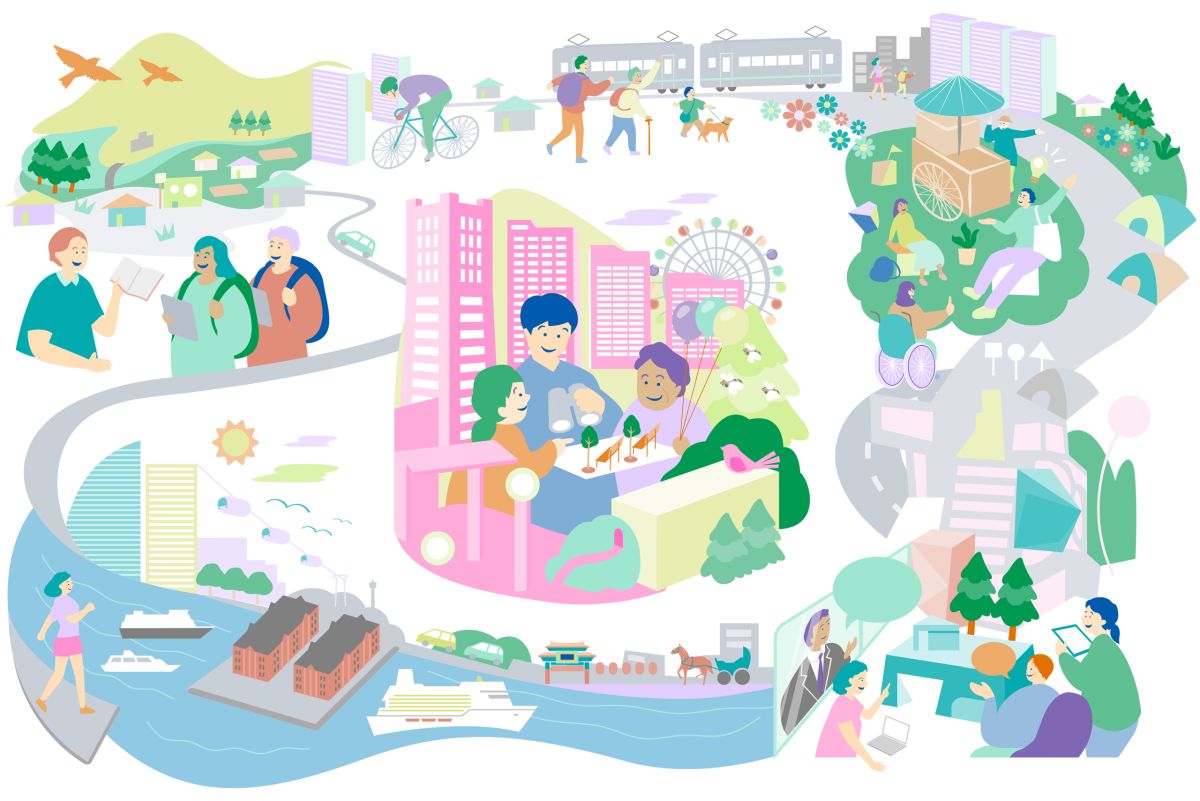Yokohama Urbanist
What is Yokohama Urbanist?

In addition to the existing system of knowledge, a new approach that integrates humanities and sciences is required to resolve various kinds of complex and diverse challenges concerning cities. This theme aims to guide students to design a future-oriented vision for cities in which people can live, work, and enjoy themselves, by considering social issues from the perspective of cities, joining a specific city/area, and adding their own expertise to civic science, which forms the foundation for addressing the issues, as well as to learn creative problem-solving and social implementation techniques.
Research Theme: Yokohama Urbanist
What are students expected to learn?
First, students learn the basic principles and concepts of civic science with a view to realizing social implementation in actual cities. They also learn applicable techniques concerning specialized technologies of civic science to understand the approach needed to operate a city. This requires them to participate in seminars and projects on regional cooperation and implementation in real-life settings so that they can experience the practical challenges involved in implementing ideas in cities. Besides the above, they also learn about AI technology and data science techniques to understand how to utilize evidence, data, and information for social implementation, carry out advanced and creative civic science research by looking at both the actual situation and information, and aim to become urbanists who can put what they have learned into practice in society.
What kind of people does the program aim to nurture?
The program aims to develop human resources who can contribute to sustainable urban development and resolve social issues simultaneously by incorporating contemporary leading-edge technologies in civic science research and social actions.
Career prospects after completing the program
Students can gain employment as urban designers, architects, social entrepreneurs and other entrepreneurs, community development NPO employees, urban planning/construction/real estate consultants, think tank employees, government employees, etc.
